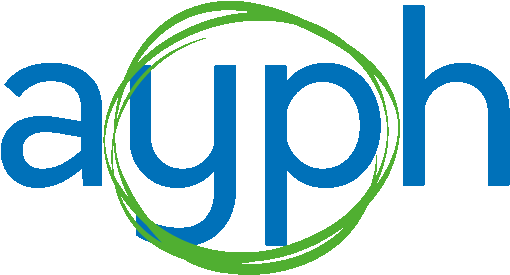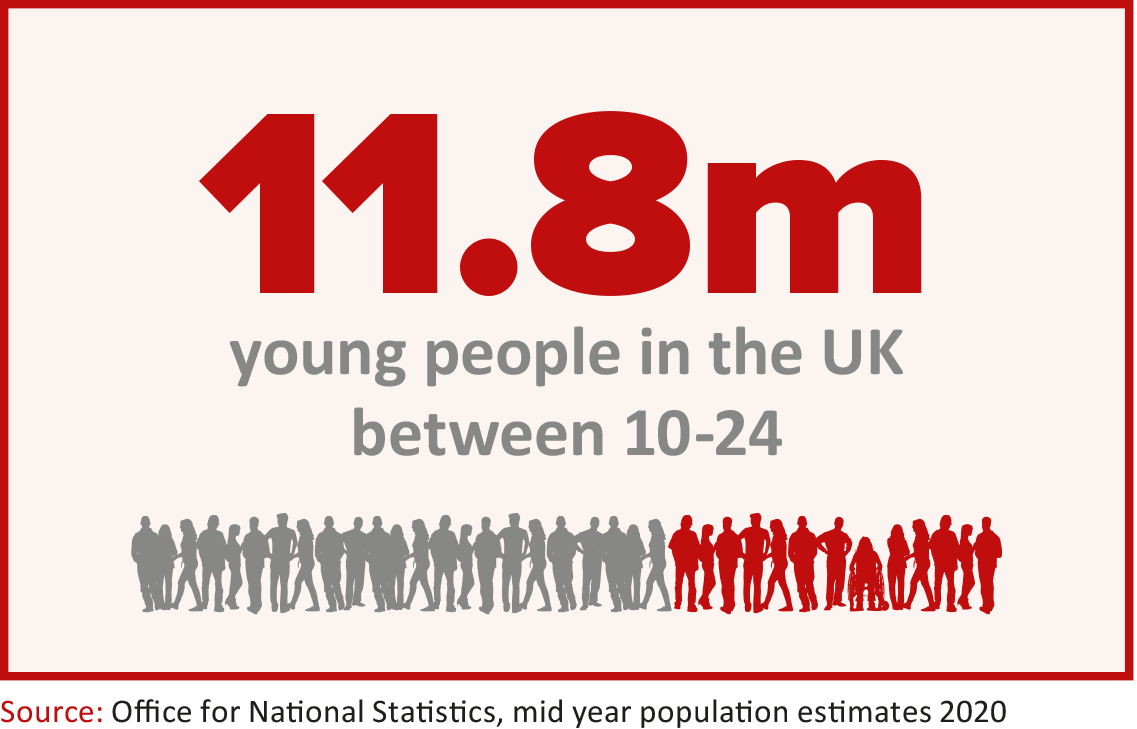This package of tools and resources has been developed to accompany AYPH training on young people’s health inequalities. The resources were last updated on 10/11/22.
This is not a definitive list of resources nor does it represent AYPH endorsement, but it is intended as a useful starting point for health services to improve young people’s access to and experiences of services which will contribute to the reduction of health inequalities.
We expect that there are many examples of good practice that you are aware of, please do let us know of anything we might be missing from this list: info@ayph.org.uk
Understanding young people’s health inequalities
- ‘Clarifying what we mean by young people’s health inequalities’ – AYPH briefing paper defining young people’s health inequalities
- UNCRC Rights of the child – every child has the right to the best possible health
Understanding the needs of young people in your area
- AYPH checklist for your service – a set of questions to make you think about your service and how best to meet the needs of young people and reduce health inequalities
- Joint Strategic Needs Assessments (JSNAs) include information that is specific to children and young people in your local area. They are integral for local planning and will underpin ICS strategies in NHS England.
- Schools in your local area may complete surveys of young people, such as those from the Schools and Students Health Education Unit
- Healthwatch searchable publications
- Regional sources of information about the health of children and young people:
- Fingertips Child and Maternal Health Profiles (England)
- Make Your Mark (UK)
- National sources of information about the health of children and young people show overall trends which might provide pointers for you to look into locally:
- AYPH youth health data hub
- State of Child Health
- Health Behaviour in School Aged Children (England, Wales, Scotland)
- You might want to consider commissioning a piece of research to tell you more about your local young people.
Creating accessible and youth friendly health services
- You’re Welcome – Department of Health and Social Care’s quality criteria for young people friendly health services
- Babies, children and young people’s experiences of healthcare – NICE guideline
- Getting health services right for 16-25 year olds – academic article exploring young people’s needs during transition
- Health appointments advice for young people – RCPCH advice created by young people for how to access NHS appointments
- Language matters – AYPH briefing paper and guidance poster including advice from young people on how to communicate with young people about health inequalities
- Making healthcare work for young people – Developmentally appropriate healthcare toolkit – NHS Northumbria & AYPH
- ‘Own it’ resources for parents and young people on rights to healthcare access – Connecting Care for Children
- Accessibility checklist for GP surgeries – Healthwatch, not youth specific
- Integrated Care Boards (ICBs) in England NHS services are required to have an executive lead for children and young people on their board. Department for Health and Social Care and NHSE have developed guidance for ICSs and ICBs.
Assessing young people’s health in your service
- HEADSS – a framework for a psychosocial interview or assessment
- SSHADESS – a strengths based psychosocial assessment
- Ready Steady Go – information about successful transfers from paediatric to adult services
- CORE measurement tools (CORE-10 – Clinical Outcomes in Routine Evaluation) & YP-CORE (for young people) – template for monitoring outcomes in psychotherapy, health and wellbeing
- PEDS-QL, Paediatric Quality of Life, versions available for children and young people aged 5-7, 8-12, and 13-18
- The Warwick–Edinburgh Mental Well-being Scale (WEMWBS)
- Outcomes STAR
Understanding young people’s experiences of services
- Friends and Family Test – NHS tool for understanding patient experience, not youth specific
- The Experience of Service Questionnaire (ESQ, formerly CHI-ESQ) version for 12-18 year olds
- Ipsos-Mori GP patient experience survey – questionnaire used for the NHS England GP Patient Survey, not youth specific
- CQC/Picker in-patient survey for 12-15 year olds
- Birmingham and Solihull Mental Health Foundation Trust patient experience questionnaire – not youth specific
Identifying groups of young people who are more likely to experience health inequalities
- Protected characteristics
- Inclusion health groups
- The Ministry of Housing, Communities & Local Government Postcode Lookup Tool provides deprivation data at postcode level
Tackling health inequalities
- Core20PLUS5 – NHS England framework for reducing health inequalities, not currently youth specific but CYP version expected soon
- NHS England’s Long Term Plan commitments to reducing health inequalities and to improve health outcomes for children and young people
- NHS England guidance for NHS commissioners on equality and health inequalities legal duties
- RCPCH toolkit for reducing child health inequalities – includes resources for discussing poverty with families, QI initiatives, and advocacy tools for local children’s services and national government
- Conversation starters for clinicians wanting to explore how the social determinants of health impact on children and families – WHAM project
- Reducing health inequalities in your local area – BMA toolkit for clinicians, not youth specific
- Health Inequalities Assessment Toolkit – NIHR, not youth specific
- Health Equity Assessment Tool – Office for Health Improvement and Disparities, not youth specific
- Tackling health inequalities toolkit – Leeds health and care partners, not youth specific
- Understanding and tackling inequalities in healthcare provision – Midlands healthcare public health, not youth specific
- Poverty proofing health settings – Children North East
- Tools to help you get started in addressing child poverty where you work – WHAM project
- A framework for healthcare institutions to use to address inequalities in child health – academic article with useful framework for health services
- Children and Young People’s Health Partnership’s (CYPHP) Child Health Learning and Delivery System (CHILDS) Framework
- Health Foundation’s framework for NHS action on the social determinants of health – not youth specific
- Office for Health Disparities guidance ‘Health disparities and health inequalities: Applying All Our Health’ – includes priority actions and recommendations for individuals working to reduce health inequalities, not youth specific
- AYPH A Fair and Equal Opportunity to Enjoy Good Health – a toolkit for young people with resources and animations for how young people can reduce health inequalities. Also includes lesson plans for teachers designed with PSHE Association.
Engaging young people in service design & feedback
- Engaging young people in healthcare – British Youth Council resources
- ‘Engaging young people in health services research and service design’ – AYPH briefing paper including advice from young people
Health inequalities training courses
- Health Education England e-learning for health training course ‘Health disparities and health inequalities’ – includes a chapter on adolescence
- RCGP Health Inequalities eLearning course – funded by NHSEI, free for GPs and health professionals, not youth specific
- Shared Health – Inequalities training day – for GPs and health professionals, not youth specific
- Population Health Digital Toolkit – Health Education England, not youth specific
- Me First – training and resources for improving communication with young people
- At AYPH we are currently developing a bespoke training package on young people’s health inequalities, please let us know if you would like to be informed of any updates on this work: info@ayph.org.uk
Young people’s health training courses
- Health Education England e-learning for health training courses ‘Adolescent Health’ and ‘Children and Young People with Mental Health Needs, Autism or Learning Disabilities’
- RCPCH SPIN module in Adolescent Health
Page last updated: 10/11/2022

Advancing young people’s health
By becoming a member, you can join with others working in the field to learn, share knowledge and get support.
Advocating for young people’s health
If you would like to work with us to support young people’s health and ensure all young people achieve the best possible health outcomes, get in touch.
Keep up to date
You can sign up to receive email updates about our work here. You can read our privacy policy here for information on how we will use your information and keep it safe and secure.

